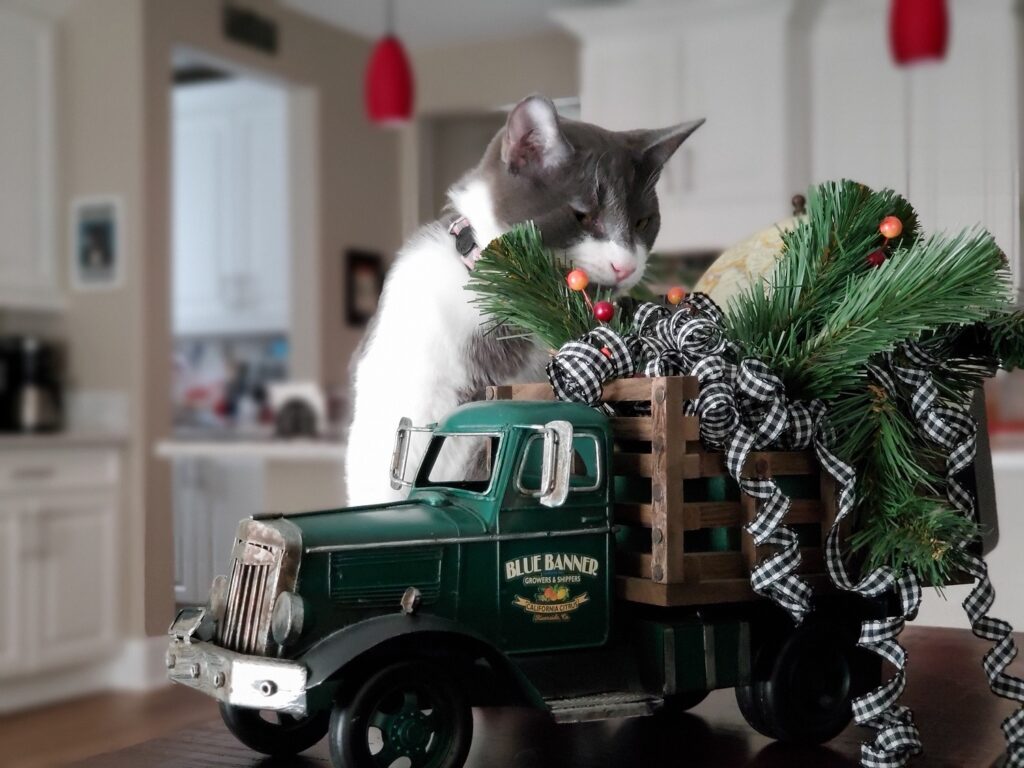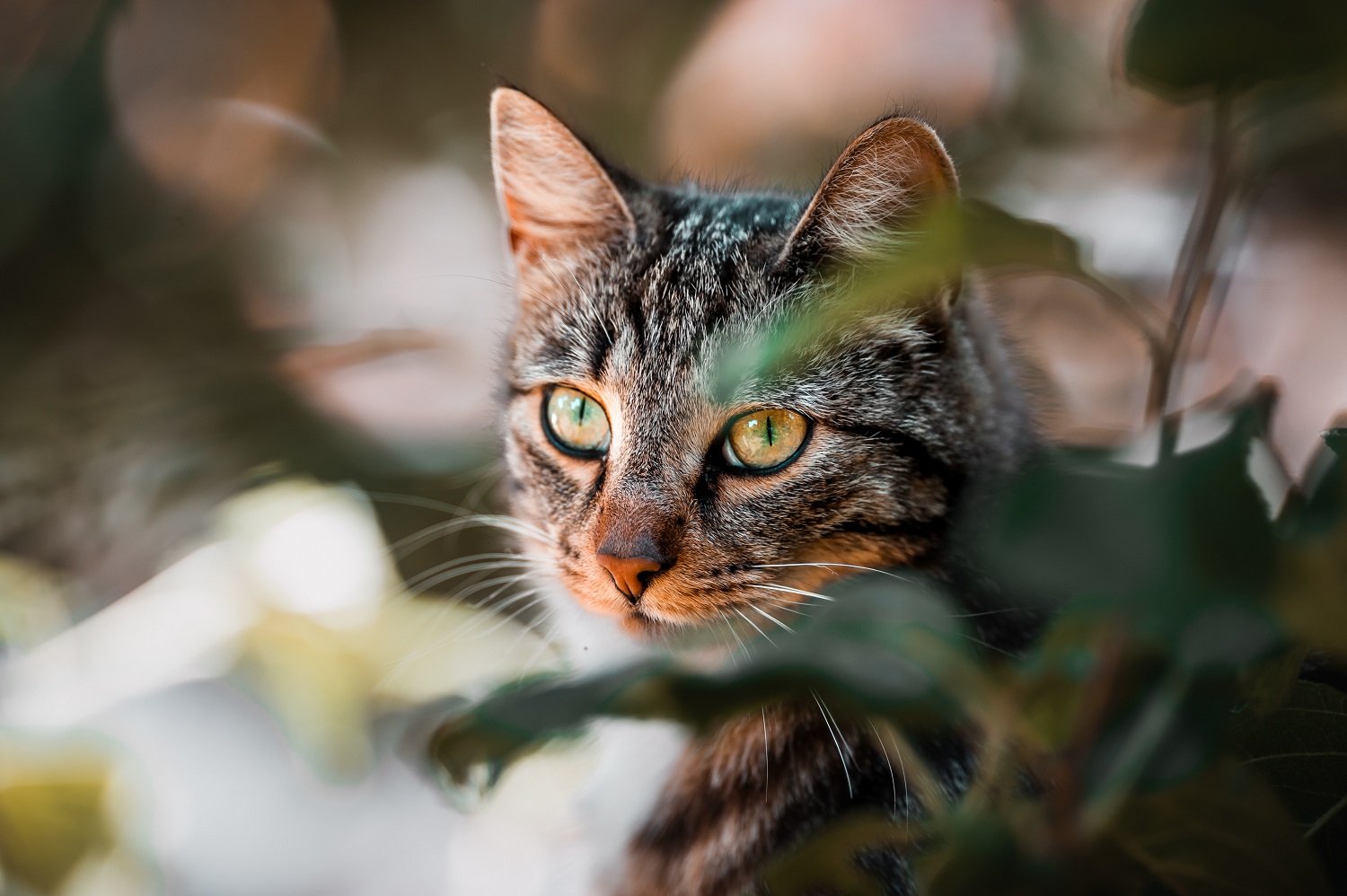Cats are curious by nature. Kittens? Even more so. They’ll sniff, lick, or chew on just about anything they find, whether it’s a tasty treat or a shiny new plant you just brought home. But unfortunately, some everyday items that seem harmless to us can be dangerous, even deadly, for cats.
Whether you’re a new kitten parent or a seasoned cat lover, it’s important to know what to keep out of reach. Here’s a breakdown of the most common poisons and toxins that can put your feline friend at risk.
Household Plants That Are Toxic to Cats
Many common houseplants are beautiful to look at but harmful if chewed on by your cat. Some of the most toxic include:
- Lilies – Even small amounts (pollen, leaves, or water from the vase) can cause kidney failure in cats.
- Pothos (Devil’s Ivy) – Causes mouth irritation, drooling, and vomiting.
- Dieffenbachia (Dumb Cane) – Can cause intense burning in the mouth, swelling, and difficulty swallowing.
- Sago Palm – Extremely toxic. Just one seed can cause liver failure.
- Aloe Vera – Good for sunburns, bad for cats. Can lead to vomiting and diarrhea.
If you’re not sure whether a plant is safe, it’s better to err on the side of caution and keep it out of your cat’s reach.
Human Foods Cats Should Never Eat
Some human foods can upset your cat’s stomach. Others can do serious damage. Avoid feeding your cat or kitten anything that includes:
- Onions and garlic – Even in powdered form, they can damage red blood cells and cause anemia.
- Chocolate – Contains theobromine, which is toxic to cats.
- Grapes and raisins – Can lead to kidney failure, even in small amounts.
- Caffeine – Found in coffee, tea, and energy drinks. It affects the heart and nervous system.
- Alcohol – Even tiny sips can lead to severe health problems or death.
- Xylitol – A sweetener found in toothpaste, sugar-free gum and baked goods. It’s extremely toxic to pets and can cause liver failure.
Keep all snacks, drinks, and leftovers well out of reach, especially if you have a counter-surfer in the house.
Real also: What human foods are safe for cats?
Common Household Products That Are Poisonous
Cats often walk through or lick things we wouldn’t think twice about. These everyday items are especially risky:
- Cleaning products – Bleach, ammonia, disinfectants, and toilet bowl cleaners can all be harmful if licked or inhaled.
- Rodent poisons – Deadly if ingested directly or if your cat catches a poisoned rodent.
- Antifreeze (ethylene glycol) – Just a few drops can be fatal. Keep garage items sealed and stored.
- Essential oils – Tea tree, eucalyptus, citrus, and peppermint oils can cause vomiting, tremors, or liver damage in cats.
Always clean up spills immediately and store products in cabinets your cat can’t access. And be cautious with diffusers. Even essential oil vapors can cause problems.
Medications That Are Dangerous to Cats
Never give your cat human medicine unless directed by a vet. Even small doses can be harmful.
- Tylenol (acetaminophen) – Extremely toxic and can cause liver failure.
- Ibuprofen and aspirin – Can lead to ulcers, kidney failure, or worse.
- Antidepressants, ADHD meds, and sleep aids – All can cause serious neurological or cardiovascular symptoms.
Even veterinary medications prescribed for other animals (like dogs) can be unsafe for cats due to differences in metabolism. Always check with your vet first.

Well, why would you put all this tasty stuff here if you didn’t want me to eat it? I really don’t understand my humans sometimes. #KittyBuffet #GreenStuffIsYummy #SneakySnacksAreMyWeakness #NeverTooFullToTrySomethingNew
Joey
Signs Your Cat May Have Been Poisoned
Symptoms can vary based on what was ingested, but common signs of poisoning include:
- Vomiting or diarrhea
- Excessive drooling
- Lethargy or weakness
- Tremors or seizures
- Pale gums
- Difficulty breathing
- Loss of appetite
- Unusual behavior or vocalization
If your cat is showing any of these symptoms and you suspect poisoning, call your veterinarian or an emergency pet poison hotline immediately.
What to Do If You Think Your Cat Was Poisoned
- Stay calm. Panic doesn’t help your cat, and time is critical.
- Remove the toxin. Take away any remaining food, plant, or substance.
- Do not induce vomiting unless directed by a vet.
- Call your vet or a poison control hotline.
- ASPCA Animal Poison Control Center: 1-888-426-4435 (fees may apply)
- Pet Poison Helpline: 1-855-764-7661
Be prepared to share:
- What your cat may have eaten or been exposed to
- How much and when
- Your cat’s age, weight, and any known health issues
Final Thoughts: A Safe Home Is a Cat-Friendly Home
Kittens are explorers. Cats are climbers, chewers, and snoops. Keeping harmful items out of reach is one of the simplest ways to keep your feline family members safe.
Take a quick inventory of your home and look for anything on this list. It might mean storing some cleaning products in locked cabinets or swapping out a plant or two, but your cat will thank you with a longer, healthier life.
A little prevention goes a long way when you’ve got a curious kitty in the house.
Sources:
– Pet Poison Helpline: Top 10 Cat Poisons https://www.petpoisonhelpline.com/pet-owners/basics/top-10-cat-poisons
– ASPCA Animal Poison Control https://www.aspca.org/pet-care/animal-poison-control
– VCA Animal Hospitals: Household Hazards for Cats https://vcahospitals.com/know-your-pet/household-hazards-for-cats
– Humane Society: Common Pet Poisons https://www.humanesociety.org/resources/common-pet-poisons
– International Cat Care: Poisoning in Cats https://www.icatcare.org/advice/poisoning-in-cats/
Recent Posts
Your Cat Might Be a Furry Little Healer… or at Least a Fuzzy Alarm System If you’ve ever had your cat suddenly become extra clingy when you’re under the weather, you’re not alone. From...
Cats are experts at hiding things, socks under furniture, their disdain for your playlist, and, unfortunately, symptoms of illness. In the wild, showing weakness could make them a target, so even...


